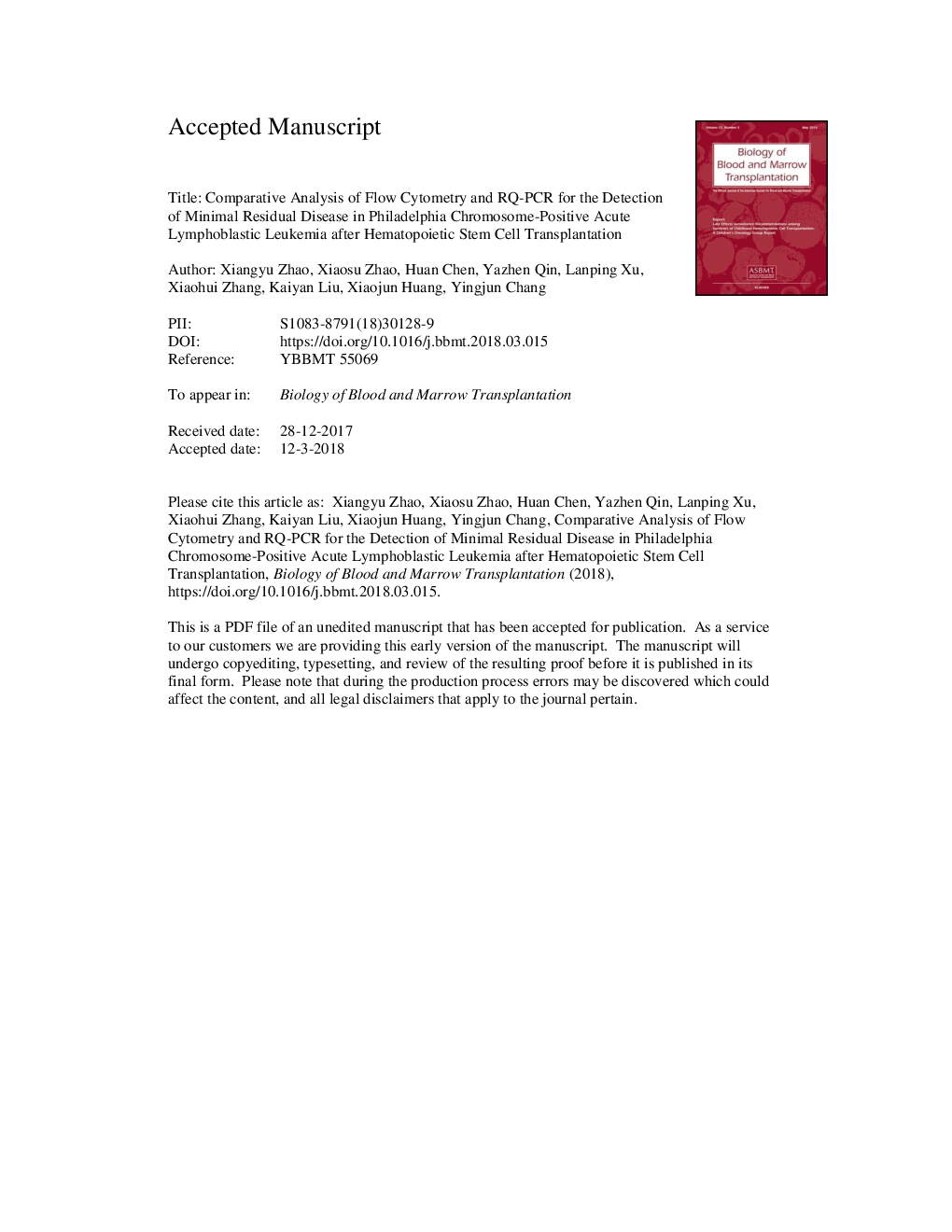| Article ID | Journal | Published Year | Pages | File Type |
|---|---|---|---|---|
| 10157469 | Biology of Blood and Marrow Transplantation | 2018 | 30 Pages |
Abstract
The aim of this study was to examine the value of minimal residual disease (MRD) detection by multiparameter flow cytometry (MFC) and real-time quantitative PCR (RQ-PCR) at the early stage after hematopoietic stem cell transplantation for predicting relapse and leukemia-free survival (LFS) in Philadelphia chromosome-positive acute lymphoblastic leukemia (Ph+-ALL). Patients who maintained complete molecular remission (BCR-ABL <.01%) status at 1 and 3 months were associated with a lower relapse rate (Pâ=â.02 and <.001) and better LFS (Pâ=â.014 and .013) than were those without a complete molecular remission. Negative MFC at 1, 2, and 3 months was associated with a lower relapse rate (Pâ=â.01, .004, and .04, respectively) and better LFS (Pâ=â.044, <.0001, and .013, respectively). Multivariate analysis showed that MRD positivity identified by MFC or RQ-PCR at 3 months was an independent risk factor for relapse (hazard ratio [HR], 6.042 (95% confidence interval [CI], 2.283 to 15.988), Pâ<â.001), LFS (HR, 3.614 (95% CI, 1.610 to 8.111), P = .002), and overall survival (HR, 2.547, 95% CI, 1.008 to 6.443), P = .048). In summary, MRD detection by MFC and RQ-PCR detection of BCR-ABL at the early stage were important predictors of outcome in patients with Ph+-ALL, and these tests played complementary roles in predicting prognosis.
Keywords
Related Topics
Life Sciences
Biochemistry, Genetics and Molecular Biology
Cancer Research
Authors
Xiangyu Zhao, Xiaosu Zhao, Huan Chen, Yazhen Qin, Lanping Xu, Xiaohui Zhang, Kaiyan Liu, Xiaojun Huang, Ying-Jun Chang,
